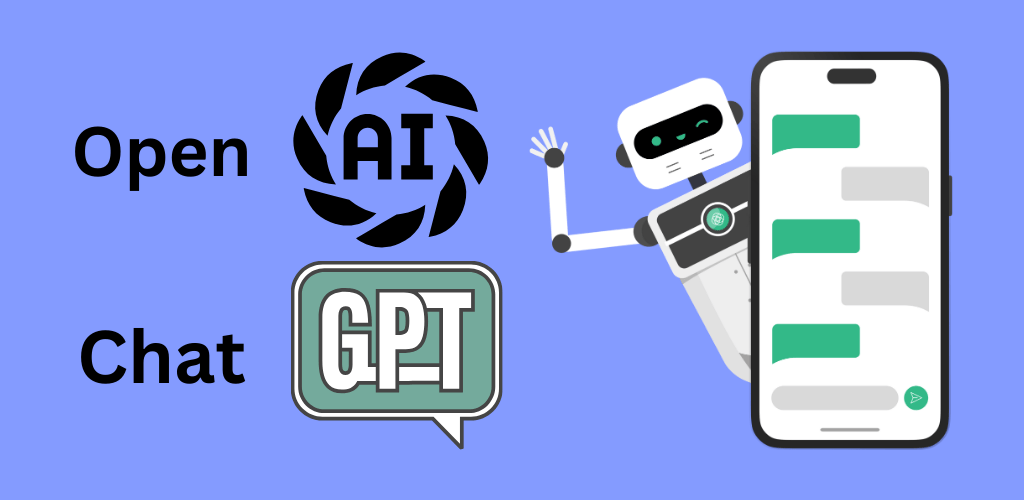Table of Contents
1. Introduction
Keyword research is the backbone of any successful SEO strategy. It helps businesses and content creators understand what their target audience is searching for and how to optimize their content accordingly. Traditionally, marketers relied on tools like Google Keyword Planner, Ahrefs, or SEMrush. However, with the rise of AI, ChatGPT has become an effective tool for keyword research.
ChatGPT for keyword research can generate keyword ideas, analyze search intent, and even help with keyword clustering—saving you time and effort. But how exactly do you use ChatGPT for keyword research? In this guide, we’ll walk you through the process with actual prompts so you can maximize your SEO strategy.
2. Understanding ChatGPT for keyword research Basics

Before diving into how ChatGPT for keyword research can help, it’s essential to understand what makes a good keyword and the different types of keywords used in SEO.
What Makes a Good Keyword?
A good keyword should:
- Have search volume (people are actually searching for it)
- Be relevant to your niche or content
- Have manageable competition (not too difficult to rank for)
- Align with search intent (matches what users are looking for)
Types of Keywords
- Short-Tail Keywords – Broad and highly competitive (e.g., “SEO”)
- Long-Tail Keywords – More specific and less competitive (e.g., “best SEO tools for beginners”)
- LSI Keywords – Related words that provide context to search engines (e.g., “Google rankings,” “on-page optimization”)
- Branded Keywords – Keywords related to a specific brand (e.g., “Nike running shoes”)
- Transactional Keywords – Indicate purchase intent (e.g., “buy laptop online”)
Understanding Keyword Intent
Keyword intent plays a crucial role in SEO. The four main types of search intent are:
- Informational – Looking for knowledge (e.g., “how does SEO work?”)
- Navigational – Searching for a specific website (e.g., “Facebook login”)
- Transactional – Ready to purchase (e.g., “best laptop under $1000”)
- Commercial Investigation – Comparing options before buying (e.g., “best budget laptops 2024”)
You can create highly targeted content that attracts the right audience by identifying the right keywords and understanding their intent.
3. Benefits of Using ChatGPT for Keyword Research

Why use ChatGPT when you have traditional keyword tools? Here are some compelling reasons:
1. Faster Keyword Discovery
Instead of manually searching through keyword databases, ChatGPT can generate multiple keyword ideas instantly with simple prompts.
2. Alternative to Paid SEO Tools
Many SEO tools are expensive, but ChatGPT provides a free or low-cost alternative to kickstart your keyword research.
3. Finding Hidden Keyword Opportunities
ChatGPT can suggest unique keyword variations and clusters that traditional tools might overlook, helping you find untapped ranking opportunities.
4. How to Use ChatGPT for Keyword Research (Step-by-Step Guide)

4.1 Generating Broad Topic Ideas
To start, ask ChatGPT to generate topic ideas related to your niche.
Example Prompt:
“Give me 10 topic ideas related to fitness blogging.”
ChatGPT Response (Example):
- Best Home Workouts for Beginners
- How to Lose Weight Without Going to the Gym
- Top 10 Healthy Meal Plans for Weight Loss
- The Science Behind Muscle Growth
- Best Supplements for Fitness Enthusiasts
- Yoga vs. Pilates: Which One is Better?
- How to Stay Motivated for Exercise
- Best Running Shoes for Flat Feet
- Benefits of Intermittent Fasting for Athletes
- Strength Training for Women Over 40
4.2 Finding Long-Tail Keywords
Long-tail keywords are crucial for ranking with less competition.
Example Prompt:
“List 20 long-tail keywords related to keto diet.”
ChatGPT Response (Example):
- Best keto breakfast recipes for beginners
- How to start a keto diet for weight loss
- Keto meal plan for diabetics
- High-protein keto snacks
- Keto diet mistakes to avoid
By focusing on long-tail keywords, you can target specific queries with less competition and higher conversion rates.
4.3 Identifying User Intent Behind Keywords
Understanding the intent behind a keyword is crucial for SEO success. You need to know whether users are looking for information, making a purchase, or just browsing.
Example Prompt:
“What is the intent behind the keyword ‘best budget laptops 2024’?”
ChatGPT Response (Example):
- Intent: Commercial investigation
- Reason: The user is comparing different laptop options before making a purchase decision.
- Content Strategy: Create a detailed comparison article featuring pros, cons, and recommendations for the best budget laptops in 2024.
By using ChatGPT for keyword research to analyze keyword intent, you can ensure that your content aligns with what users are actually looking for, increasing the chances of ranking higher in search results.
4.4 Generating Keyword Clusters
Keyword clustering involves grouping similar keywords to target multiple search queries with one piece of content. This helps improve SEO and content strategy.
Example Prompt:
“Group these keywords into clusters: best laptops for students, budget gaming laptops, high-performance business laptops, best MacBooks for professionals, affordable ultrabooks.”
ChatGPT Response (Example):
- Student Laptops Cluster: Best laptops for students, affordable ultrabooks
- Gaming Laptops Cluster: Budget gaming laptops
- Business Laptops Cluster: High-performance business laptops, best MacBooks for professionals
Using keyword clusters, you can create a comprehensive content strategy covering multiple search queries while avoiding keyword cannibalization.
4.5 Analyzing Competitor Keywords
Competitor keyword research helps you discover what’s working for others and how you can optimize your content.
Example Prompt:
“Give me alternative keywords for ‘best digital marketing tools’.”
ChatGPT Response (Example):
- Top SEO tools for marketers
- Best online marketing software
- Essential tools for digital marketers
- Must-have tools for social media marketing
- Free and paid digital marketing tools
By analyzing competitor keywords, you can refine your own SEO strategy and target keywords that competitors may have overlooked.
5. Using ChatGPT for keyword research to Create SEO-Optimized Content Around Keywords

Once you have your keywords, the next step is to create high-quality content optimized for SEO.
Example Prompt:
“Write an SEO-optimized article outline for ‘best digital marketing tools’.”
ChatGPT Response (Example):
Outline for “Best Digital Marketing Tools”
- Introduction – Importance of digital marketing tools
- Top SEO Tools – Ahrefs, SEMrush, Moz
- Best Social Media Tools – Buffer, Hootsuite, Sprout Social
- Email Marketing Tools – Mailchimp, ConvertKit, ActiveCampaign
- PPC and Ad Tools – Google Ads, Facebook Ads Manager
- Conclusion – Which tools are best for different needs
ChatGPT helps structure your content for better readability and search engine ranking.
6. Combining ChatGPT for keyword research with Other SEO Tools
While ChatGPT for keyword research is a powerful tool, combining it with traditional SEO tools ensures accuracy and effectiveness.
Using ChatGPT with Google Keyword Planner
- Find search volume and competition for ChatGPT-generated keywords.
- Validate whether a keyword has real search demand.
Integrating with Ahrefs, SEMrush, or Ubersuggest
- Analyze keyword difficulty and competition.
- Find backlink opportunities.
- Monitor rankings and performance.
You get the best of both worlds by combining AI insights with data-driven SEO tools.
7. Common Mistakes to Avoid When Using ChatGPT for Keyword Research
Many people make mistakes when using ChatGPT for keyword research. Here’s what to watch out for:
1. Relying Solely on AI Without Validation
Always verify ChatGPT’s for keyword research suggestions with real search volume data from tools like Google Keyword Planner or Ahrefs.
2. Ignoring Keyword Competition
Some keywords may be too competitive for new websites. Use ChatGPT for keyword research to find long-tail variations with lower competition.
3. Overstuffing Content with Keywords
Keyword stuffing can hurt SEO rather than help. Use keywords naturally within the content.
8. Conclusion
ChatGPT for keyword research is a powerful tool, helps you generate keyword ideas, analyze intent, and create structured content. However, it should be used alongside traditional SEO tools to ensure accuracy. By using the right prompts and validating your keywords, you can enhance your SEO strategy and improve your search rankings.
9. FAQs
1. Can ChatGPT for keyword research replace traditional keyword research tools?
No, ChatGPT is a great supplement to keyword research but should be used alongside SEO tools like Ahrefs or Google Keyword Planner for accurate data.
2. How accurate are ChatGPT-generated keywords?
ChatGPT can suggest relevant keywords, but they need to be verified using SEO tools to ensure they have actual search volume.
3. Can ChatGPT help with local SEO keyword research?
Yes! You can ask ChatGPT for location-based keywords, but you should validate them with Google Trends or other local SEO tools.
4. What is the best way to validate ChatGPT keyword suggestions?
Use tools like Google Keyword Planner, Ahrefs, or Ubersuggest to check search volume, competition, and ranking difficulty.
5. How often should I update my keyword research strategy?
SEO trends change frequently. It’s best to refresh your keyword research every few months to stay ahead of competitors.








